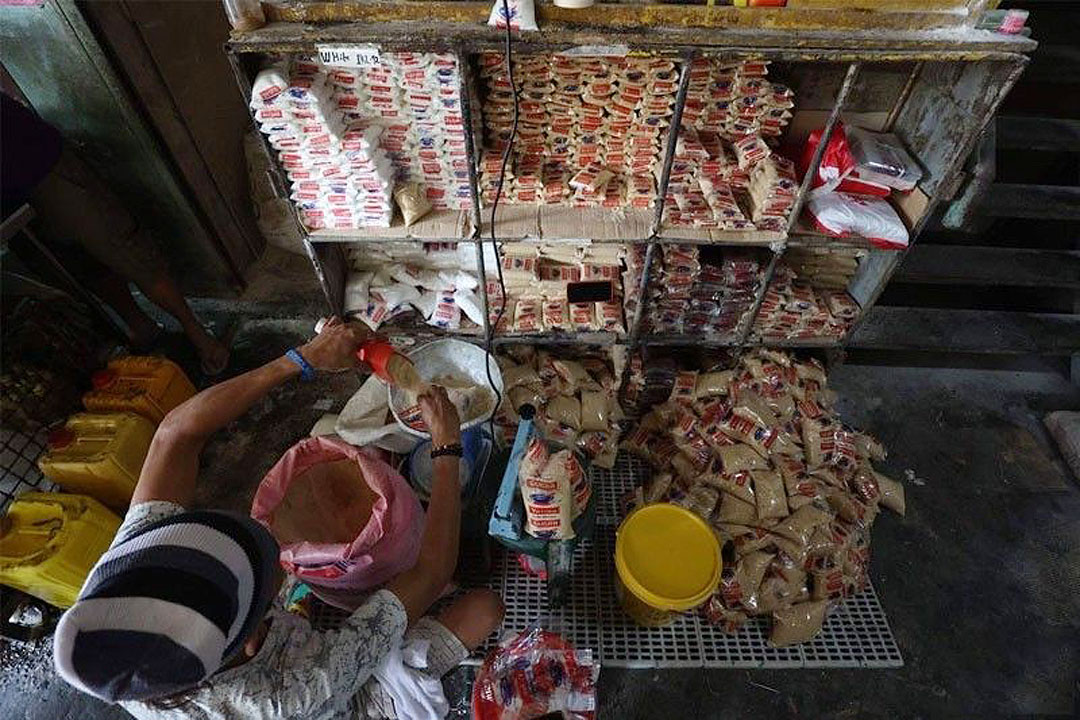Sugar at retail still above P100/kg — DTI

SUGAR PRICES at the retail level are selling for more than P100 per kilogram (/kg), according to the Department of Trade and Industry (DTI), which has taken on a price-monitoring role for the commodity.
“We are still seeing sugar that is expensive. The price is hitting P100 to P105/kg,” Trade Undersecretary Ruth B. Castelo said in a televised briefing on Thursday.
Ms. Castelo said consumers have the option to shop for sugar in markets participating in a government scheme to offer sugar for less.
“We have given the consumers choice, since the three supermarkets that entered into an agreement with the President (Ferdinand R. Marcos, Jr.) — they are now selling P70/kg white refined sugar in all SM, Robinsons, and Puregold branches,” Ms. Castelo said.
Ms. Castelo invited smaller supermarket groups to join the agreement, saying that the DTI will include them in their promotion efforts.
“The small supermarkets are most welcome to join us if they can sell P70/kg white refined sugar. Our incentive is that we will promote these stores so that the consumers will buy their sugar,” Ms. Castelo said.
Separately, American Chamber of Commerce of the Philippines Executive Director Ebb Hinchliffe said on the sidelines of the business group’s 120th anniversary celebration in Pasay City late Wednesday that the Philippines must import sugar to address the supply crisis.
“It is a crisis. It is a big one. Absolutely, we must import (sugar),” according to Mr. Hinchliffe, referring to the needs of US soft drink brands operating in the Philippines.
“I met with Coca-Cola and Pepsi. We’ve sent a letter to the President Marcos outlining that the sari-sari stores will not have Coca-Cola, RC, Pepsi by mid or late September, and it is a reality,” he added.
According to Mr. Hinchliffe, the sugar supply deficit is around 600,000 metric tons (MT). This is much larger than the 150,000 MT the government plans to import.
“The President ordered the import of 150,000 MT. That is a good start. The backlog is 600,000 MT,” Mr. Hinchliffe said.
Press Secretary Rose Beatrix Cruz-Angeles said on Aug. 18 that Mr. Marcos, Senate President Juan Miguel F. Zubiri, and the sugar industry reached an agreement to import 150,000 MT of sugar.
Mr. Hinchliffe said that the Philippines needs to upgrade its refining industry adding that he believes hoarding is not taking place.
“I’m not concerned about the sugar farmers. They’re doing a pretty good job considering that they don’t have the fertilizer made here. They had Typhoon Odette come through and hurt the crops… The capacity of the refineries is the problem. It is not getting from the farm to the refinery down to the market. I don’t believe there is hoarding. I think there is a shortage,” Mr. Hinchliffe said.
Typhoon Odette, which hit in mid-December, inflicted P13.3 billion worth of damage to agriculture, according to Agriculture department data. The crop year for the sugar industry begins in September.
The DTI’s Ms. Castelo said that the country does not have supply issues with salt, after comments by Agriculture Undersecretary Domingo F. Panganiban about a shortage in industrial-grade salt.
“We have sufficient supply. We have around three or four large companies that are producing salt and we also have imported salt,” Ms. Castelo said.
She added that the DTI is hoping to issue a suggested retail price bulletin for items typically served in the Christmas Eve meal — known as Noche Buena — by the end of October or early-November.
“Our advice to consumers is to buy these Noche Buena products now since these do not expire immediately. It is better to buy while it is still early,” she added. — Revin Mikhael D. Ochave



